Postpublished at 11:42 BST 4 August 2014
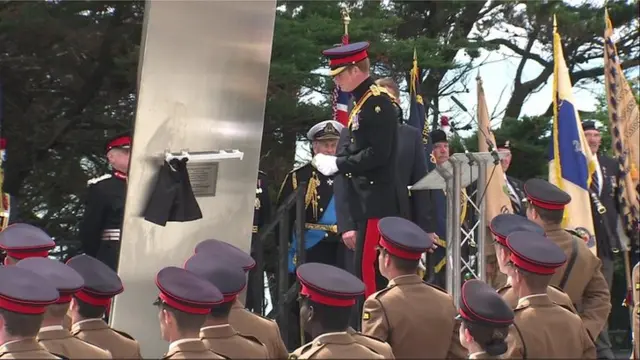
Prince Harry has opened the Memorial Arch in Folkestone, at the spot where 10 million men began the journey to northern France during the conflict.
Monday 4 August 2014 marked the 100th anniversary of the start of Britain's involvement in WW1
About 17m soldiers and civilians worldwide were killed between 1914 and 1918
Royal Family members and world leaders attended commemorative events in the UK and elsewhere
An international ceremony of reconciliation was held outside the Belgian city of Mons
The day's events ended with a candle-lit vigil at Westminster Abbey and "lights out" events around the UK
Tom Moseley, Patrick Evans, Dhruti Shah, Anna Jones, Claire Bates, Nick Eardley, Kerry Alexandra, Kate McGeown and Gerry Holt

Prince Harry has opened the Memorial Arch in Folkestone, at the spot where 10 million men began the journey to northern France during the conflict.
.jpg.webp)
.jpg.webp)
.jpg.webp)
A new war memorial has been unveiled in Bramley Park, Leeds - the only one in the UK to be unveiled today. Denis Matthews from Leeds (pictured) was the Parade Marshall at the event.
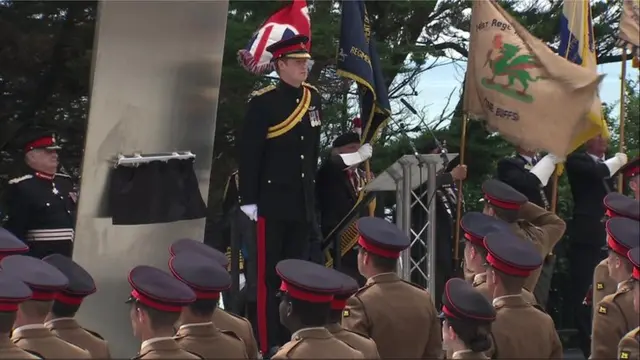
Prince Harry heard the background to the memorial project in Folkestone and the area's contribution to the war effort, as he arrived earlier.
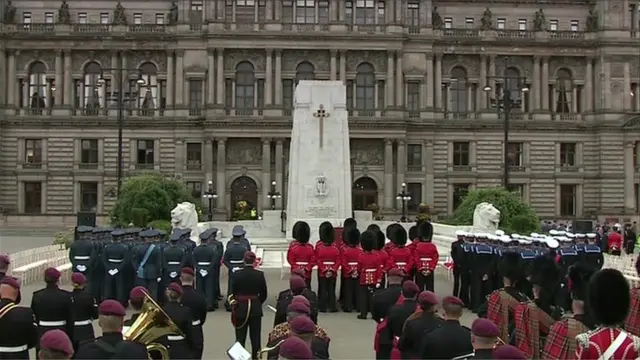
Dignitaries from across the Commonwealth are continuing to arrive in George Square in Glasgow for a wreath-laying ceremony.
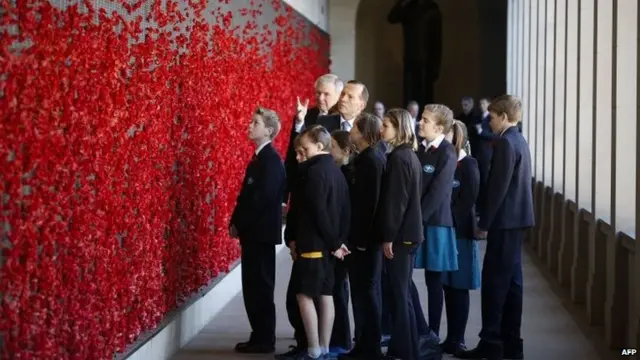 Image source, AFP
Image source, AFPEarlier today in Australia, Prime Minister Tony Abbott walked schoolchildren past the Roll of Honour in Canberra, where the names of the Australians who died in WW1 are listed.
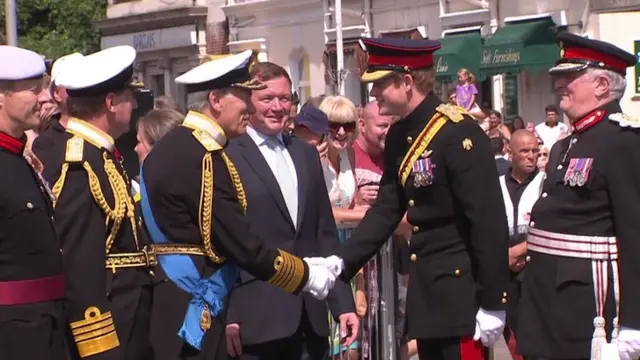
Prince Harry has arrived in Folkestone where he will unveil a memorial shortly.
James Buchanan
News Editor, First World War Centenary
.jpg.webp)
Musician Robert Blencowe of the Coldstream Guards applying spit and polish to his boots ahead of tonight's ceremony at St Symphorien Cemetery in Mons.
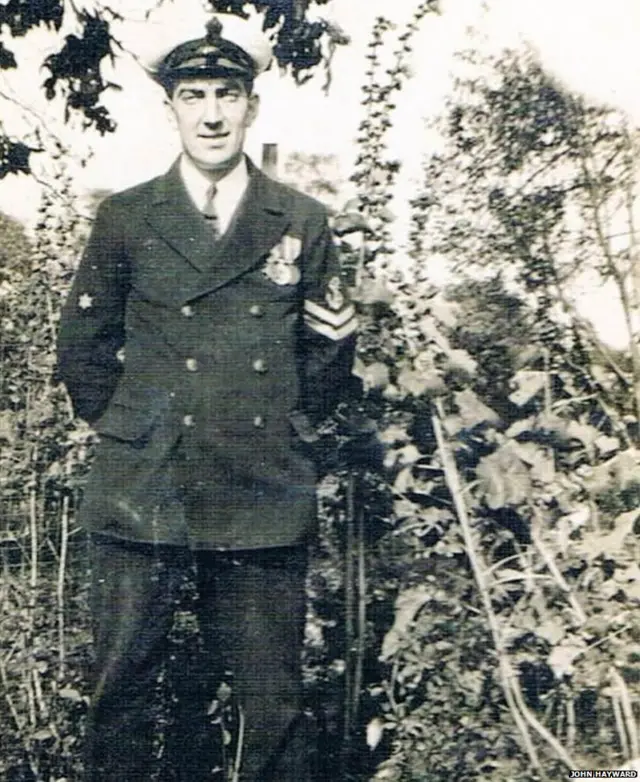 Image source, John Hayward
Image source, John Hayward@drjohnhayward tweets:, external Granddad Albert (1896-1939): Ship sunk by a mine off Cape Wrath…Twice saw action inc. Battle of Jutland #Remember #WW1
Kevin Lord in Saint Lucia, West Indies, emails: My grandfather, Mathias or Marcel Andrew, served as a signaller in Europe during WW1. When the ship carrying the soldiers was leaving Saint Lucia, the people on shore sang the song 'may all acquaintance be', I think it's called Auld Lang Syne.
A wreath-laying ceremony in Glasgow, at the war memorial in George Square, is about to begin.
 Nick Higham
Nick Higham
BBC News
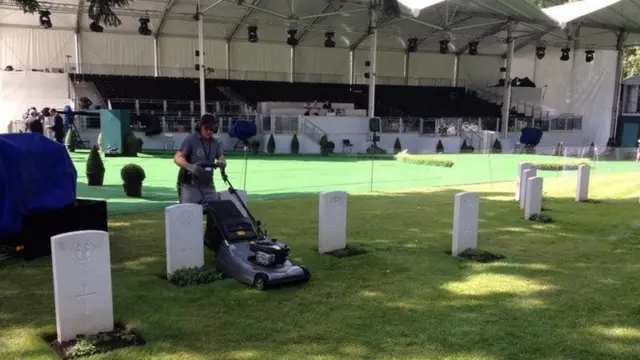
Giving the manicured lawns at St Symphorien, typical of British war cemeteries, some last minute attention #WW1
 News from 1914
News from 1914
The world on the brink of war
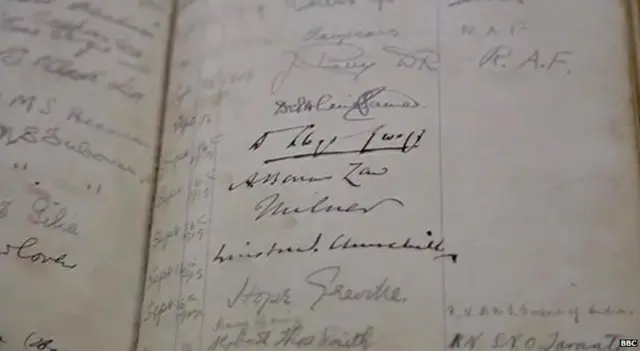
This Folkestone ledger recorded the names of thousands of people who passed through the port in WW1
Folkestone in WW1
Folkestone was one of the most important British ports in the war. Around 10 million soldiers, supply men, nurses, and chaplains passed through this port on their way to and from the Western Front.
At any one time, large numbers of houses, hotels and other buildings were commandeered for the hundreds of thousands of soldiers staying in the town.
Many of the travellers wrote down their names in a ledger in the Harbour Canteen.
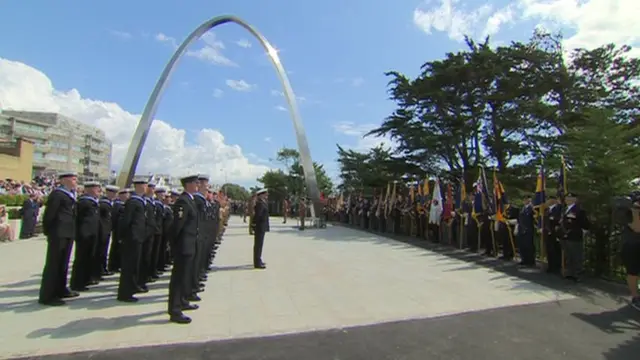
In Folkestone, southern England, Prince Harry will soon unveil a memorial arch, commemorating the millions who marched to the Western Front.
Here's a reminder of what is still to come today:
A parade in Folkestone, Kent - attended by Prince Harry - following the route millions of soldiers took to the harbour where they began the voyage to France
In Scotland a wreath-laying ceremony at the Cenotaph in Glasgow is one of many events being held
In Northern Ireland from 19:00, a service at St Anne's Cathedral in Belfast will be attended by First Minister Peter Robinson and NI Secretary Theresa Villiers
From 19:30 BST, the Duke and Duchess of Cambridge and Prince Harry will mark the centenary at St Symphorien Military Cemetery in Mons, Belgium
Westminster Abbey will hold an hour-long candle-lit vigil service of prayer from 22:00
In Wales, a national service of remembrance at Llandaff Cathedral in Cardiff will also take place from 22:00
Steve Cheney comments, external: If only we matched this "commemoration" by not throwing our support behind warmongers all over the world.
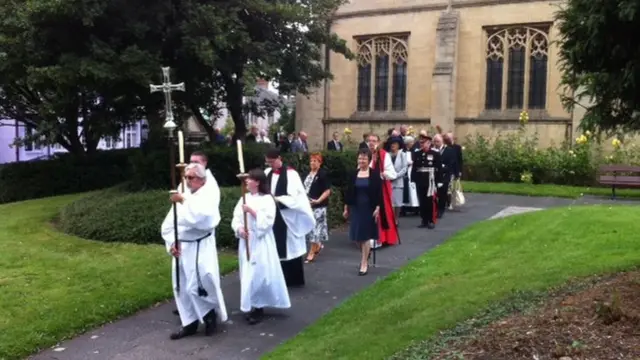
In Sunderland, religious, military and political figures have been marking Britain's entry into the war 100 years ago.
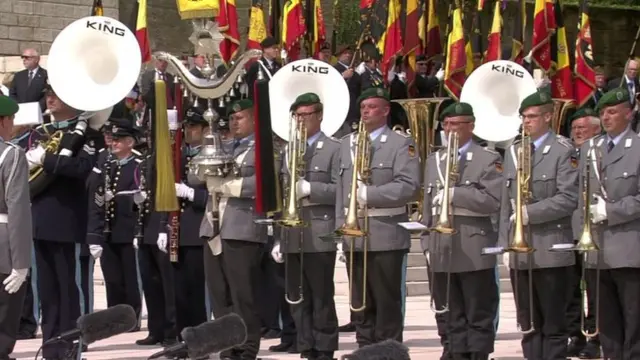
In Liege, a German military band performed for the assembled guests.
 Robert Hall
Robert Hall
BBC News, St Symphorien Military Cemetery, Belgium
St Symphorien has become an arena, overlooked by a worldwide audience, where this evening's televised event will mark personal sacrifice and celebrate new friendships. Under the pine trees, David MacCarthy had come to find the grave of his great-uncle, killed 10 days after arriving in Belgium, aged 23. Standing in front of the headstone with his daughter, David said he was proud to be here on this anniversary.
 Robert Hall
Robert Hall
BBC News, St Symphorien Military Cemetery, Belgium
The beautiful military cemetery at St Symphorien has been transformed. Across the boundary fence, in what is normally empty farmland, a great grandstand has risen, overlooking the graves of the first and the last British soldier to die in the First World War. Cables snake around the gravestones of British and German soldiers, laid here side by side after the battles that raged around Mons on summer days in 1914.
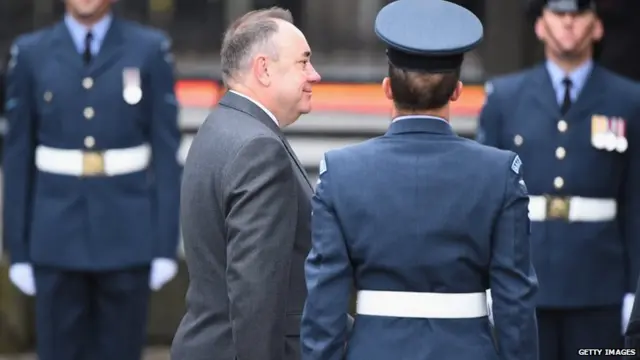 Image source, Getty Images
Image source, Getty ImagesScottish First Minister Alex Salmond was one of the many political leaders at Glasgow Cathedral this morning. Earlier, he reflected on the impact of the war on Scotland, saying: "Scotland's losses were, per capita, among the highest of any combatant nation, and the war's effects on our nation were profound and long-lasting."